
Publish time: Thu Mar 02 08:43:23 CST 2017
Between Feb 2 to 10 2017, the 66th session of the United Nations Commission on International Trade Law (the “UNCITRAL”) Working Group II (Dispute Settlement) was held at the UN headquarter in New York. Being invited as an observer, the Beijing Arbitration Commission/Beijing International Arbitration Center (the “BAC”) dispatched a delegation comprised of Mr. Ding Jianyong, Director of BAC Business Dept. I, Mr. Yang Xiaochuan and Ms. Ji Gefei, BAC arbitrators, Mr. Xu Jie, BAC Senior BD Director, and Ms. Deng Rui, BAC Case Manager, to attend the meeting.
The UNCITRAL Working Group II (Dispute Settlement) has for a long time been working on the research and preparation of the texts of international conventions and model provisions relating to international dispute resolution. In 2014, the UNCITRAL had a discussion on the cross-border enforcement of settlement agreements (A/CN.9/822), and then at its 48th session in 2015 the commission agreed that the Working Group II should commence work at its 63rd session on the topic of enforcement of settlement agreements, including the discussion and preparation of an instrument dealing with enforcement of international commercial settlement agreements resulting from conciliation (A/CN.9/832). After the deliberation from the 63rd session to the 65th session, the Working Group II so far has drafted the framework of the instruments, coordinated different positions and propositions as well as interest demands of delegations from its member states, and has gradually focused on discussion and negotiation on five issues: the legal effect of settlement agreements, settlement agreements concluded in the course of judicial or arbitral proceedings, opt-out or opt-in for the parties to the settlement agreement; the declaration by states regarding the effect of an opt-in by the parties, the impact of the conciliation process, and of the conduct of conciliators, on the enforcement procedure, and the formation of the instrument.
Delegations and observer delegations from more than 100 member states attended this meeting. Under the rules of procedure of the UNCITRAL Working Group, the delegations have made some progress on the above issues after intense discussion and negotiation for five days. Firstly, several rounds formal and informal negotiations have been conducted among delegations of clear divergence of views, which finally led to certain consensus on provisions representing the validity of settlement agreements – it is unanimously believed that there should be a clear distinction in such provisions between the state where the enforcement is sought and the state where the settlement is reached, while it is basically recognized that proper wording should be adopted with regard to the coverage of enforceable settlement agreements, so as to eliminate overlaps and gaps between the enforceable settlement agreement covered by this instrument and the scope of enforceable legal instruments covered by conventions such as the Hague Convention on Choice of Court Agreement and the New York Convention. Secondly, despite the still existing substantive divergence among delegations, a significant compromise has been reached on the impact of the conduct of conciliators on the enforcement procedure, since it is a shared view of almost all the observer delegations that the conduct of conciliators should not or merely to a lesser extend influence the parties’ wills to reach settlement, and the principles of equal treatment, independence and impartiality under the existing UNCITRAL Model Law on International Commercial Conciliation are stipulated in abstract terms. Lastly, with respect to the selection of the form of the convention and the model provisions, it is unanimously agreed by almost all the delegations that the Working Group shall prepare/amend a draft convention and draft model provisions in the meanwhile on the ground of the discussion progress.
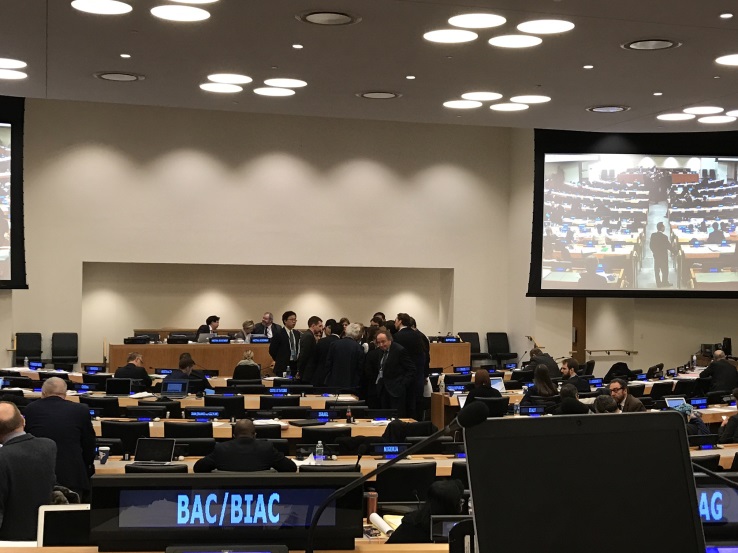
Warm discussion among delegations and observer delegations<
The BAC delegation, acting as an observer for the first time, has carefully studied the rules of procedure of the UNCITRAL Working Group, and specifically opined on the issues of the scope of enforceable settlement agreements and the impact of the conduct of conciliators on enforcement procedure. Based on the dispute resolution practice of the BAC and the observation of arbitration and conciliation practice in China, the BAC delegation pointed out in its presentation that: firstly, the conduct of conciliation is different from that of adjudication, and it will create a paradox in theory as to the voluntariness of conciliation if the conduct of conciliators are assumed as conditions by which to invalidate settlement agreements. Secondly, such instrument should ensure sufficient expectation of enforceability for certain dispute resolution means, with concise wording as far as possible and limitation of substantive review, which is a foundation of the New York Convention’s success for arbitration, the footstone of the vigorous development of Chinese arbitration institutions such as the BAC during the past two decades, and should be the fundamental principle to be stuck to in drafting the instrument this time. Thirdly, from the dual aspects of international convention and model provisions, the terms “fair treatment” and “manifest failure” set forth in the discussion draft may face risks in the enforcement procedure, and the unpredictability of judicial review in the state where the enforcement is sought arising therefrom shall be an inevitable problem. If drafted as an international convention, the wordings should be adopted for the convenience of judicial review operation of the state where the enforcement is sought. Fourthly, a restrictive description should be added to the “standards applicable” involved in the second draft as amended based on this discussion, and on the ground of rules and standards covered by the voluntariness of conciliation, the judicial reviewer’s interpretation of this term during the non-enforcement procedure should be strictly limited in the event of institutional conciliation, without exceeding the parties’ previous agreement and expectation. From an overall perspective, the BAC delegation’s speeches have integrated into the discussion of the Working Group meeting. As an observer, the BAC has made timely contribution of its practice experience and its observation of the dispute resolution development in China.
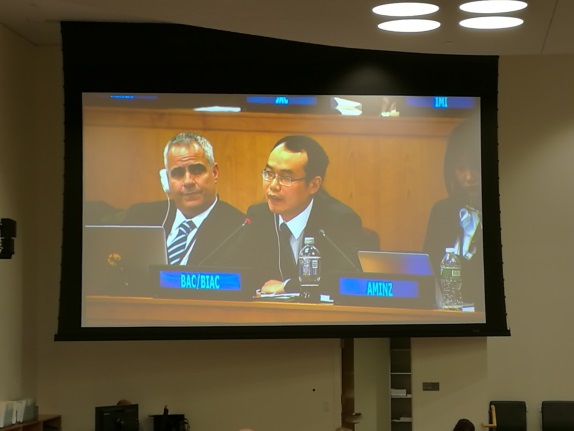
|
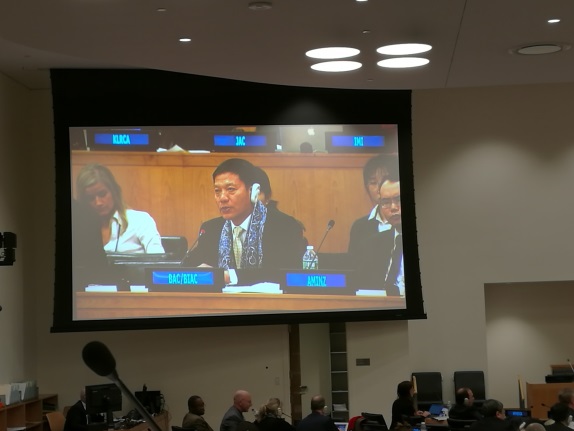
|
| Mr. Ding Jianyong | Mr. Yang Xiaochuan |
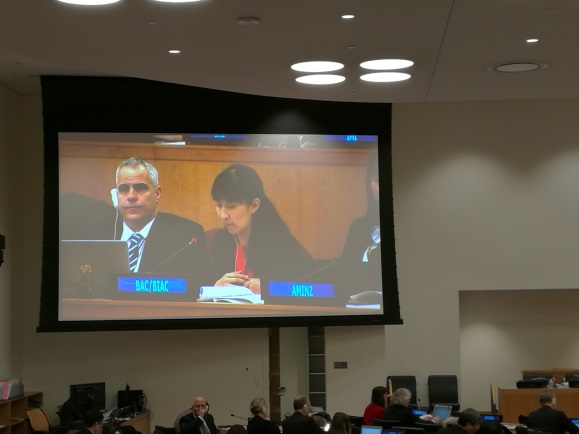
|
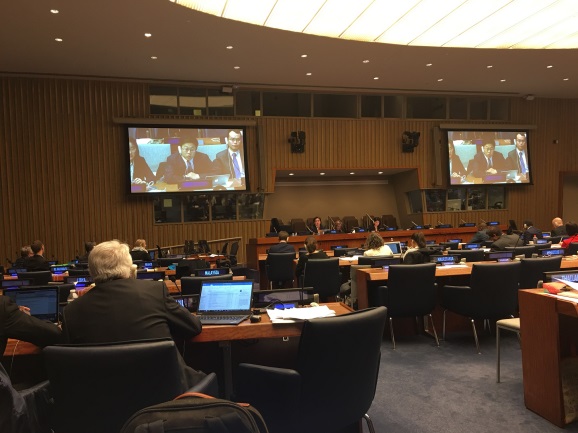
|
| Ms. Ji Gefei | Mr. Xu Jie |
As an important platform of rulemaking for international dispute resolution, the UNCITRAL takes an obviously leading role in highlighting conciliation and conducting research thereon. What is especially noteworthy to Chinese conciliation practitioners and those who pay close attention to the development of the Chinese conciliation industry is that the current discussion of the UNCITRAL Working Group II is aiming at the promotion of international commercial dispute resolution efficiency, and the wordings of relevant instruments are mainly based on the market-oriented conciliation experience under Common Law system. With strong supports of related parties, the Chinese conciliation industry has made quick progresses in its development. Still there are huge space for further development and improvement for the idea and methodology of conciliation, either from the aspect of detailed conduct of conciliation or from the aspect of the whole conciliation mechanism plan. Even amended after the discussion at this meeting, the instrument still does not address some issues of the Chinese conciliation practice that have yet to be resolved, such as third parties’ infringement arising from false or malicious conciliation, and the cost increase in the event no settlement agreement is reached in conciliation. Nevertheless, it is worthy to be affirmed that the effect of conciliation in resolving international commercial disputes has been widely accepted by the delegations. Such acceptance is undoubtedly reflected in the existing text of the instrument, which is of potential of bringing conciliation into full play in international commercial dispute resolution, and thus is basically in conformity with the laws and requirements of market-oriented conciliation development. As for the BAC, this will be helpful for the long-term growth of its diversified dispute resolution, and the BAC will surely go all out in this work.
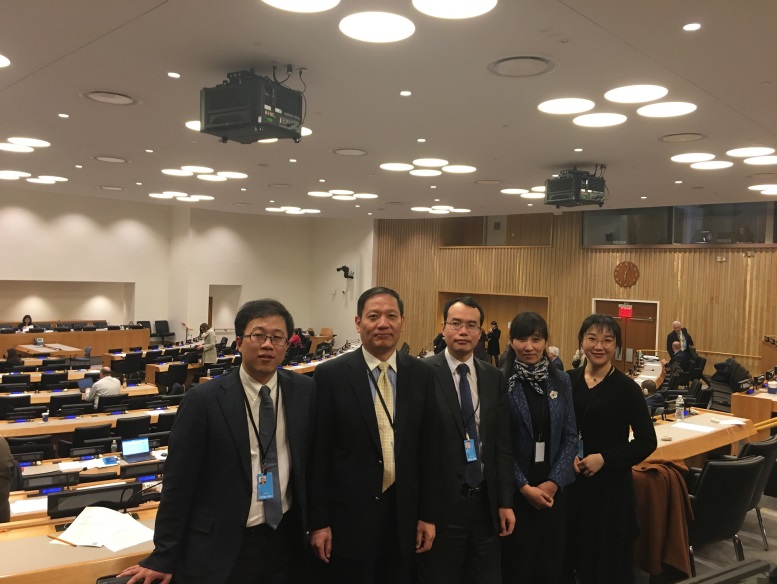
BAC delegation successfully accomplished its mission
Apart from that, the BAC delegation has also attended the colloquium on conciliation hosted by the JAMS and the UNCITRAL during this trip, where it had an extensive exchange with other attendees.
As a leading Chinese dispute resolution institution, the BAC has endeavored to win the seat of observer at the UNCITRAL, not only looking forward to promoting the international image of the Chinese dispute resolution industry, but also expecting to striving for more space and opportunities to speak out for the Chinese dispute resolution industry. Meanwhile, the BAC hopes that more entities could join in the research on relevant issues, and assist the BAC to increase its professional contributions as an observer, injecting more workable Chinese wisdom and experience into the deliberation of the UNCITRAL Working Group II.
(The work report of the BAC delegation will be further polished and published shortly. Anyone who is interested in participating the subsequent colloquia and researches organized by the BAC will be welcomed.)